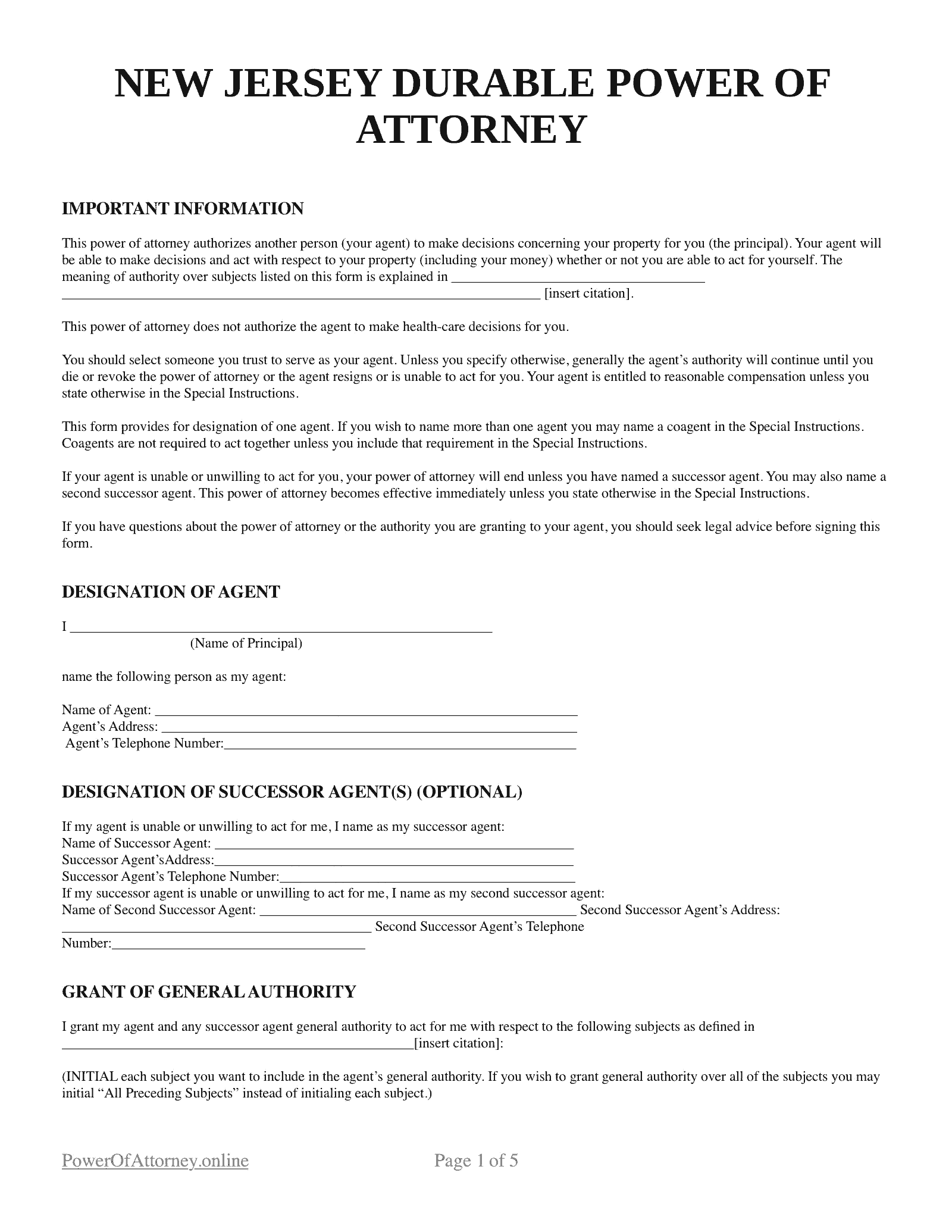Free New Jersey Power of Attorney Forms
Certain circumstances in life sometimes necessitate others to make important transactions and decisions on our behalf. Whether it’s regarding one’s property, investments, finances, or healthcare, a legally binding power of attorney (POA) form can empower someone else to step in and make significant decisions in these matters for someone else.
The person granting the authority is known as the principal, while the person being given the authority is referred to as the agent.

New Jersey Power of Attorney By Type
There are three basic types of POA: financial, medical, and durable. The document can be general or limited. General means that the authority given to the agent is broad, while a limited POA defines specific responsibilities.
Here are the types of POAs and their context:
Financial Power of Attorney
The agent acts on behalf of the principal on financial matters when armed with a financial POA. It could be as simple as signing checks or as sensitive as making deposits or withdrawals.
When the POA is general, the agent has broad permission to perform various transactions that impact the principal’s finances, such as managing properties and investment accounts.
Healthcare Power of Attorney
When the principal files a healthcare POA, the agent has the power to make medical-related decisions. The power continues even when the principal becomes incapacitated. In fact, the goal of this POA is to ensure that healthcare will not be impeded when the patient becomes too incompetent to make decisions.
Durable Power of Attorney
The effectivity of most POAs ends when the principal becomes incompetent unless the document is durable. A durable POA ensures that financial and healthcare activities will not be neglected even when the principal becomes incapacitated. In some cases, a POA is only activated when the principal is no longer mentally able to make decisions.
How To Get a Power of Attorney in New Jersey
Anyone can approach a New Jersey law firm to acquire a POA, but for convenience, you can also download a printable template online based on New Jersey’s standards. Once you have a standard template, customize the document to reflect the specific responsibilities you want your agent to have.
New Jersey Power of Attorney Laws
The New Jersey Annotated Statutes provide official regulations for the powers of attorney in New Jersey. Here are its specific provisions:
- Section 46:2B-8.2 - In New Jersey, a durable POA contains explicit phrasing about the document’s power. It must state: “This power of attorney shall not be affected by subsequent disability or incapacity of the principal or lapse of time.” Another variation states: “This power of attorney shall become effective upon the disability or incapacity of the principal.” It doesn’t have to be verbatim, but the meaning must be the same.
- Section 46:2B-8.3 - This section is about a durable POA that isn’t affected by time. It describes its effectiveness regardless of the length of time, disability or incapacity. The section reads: “Unless the instrument states a time of termination, the power is exercisable notwithstanding the lapse of time since the execution of the instrument.”
- Section 46:2B-8.5 - Since POAs are no longer in effect after the principal’s death, what happens to post-mortem transactions made by an agent unaware of the principal’s death? This section explains how transactions that have been made in good faith are treated after death. Part of the section reads: “Any action so taken, unless otherwise invalid or unenforceable, binds the principal’s successors in interest.”
FAQs About New Jersey Power of Attorney Forms
The following are the most common questions raised about legal documents.